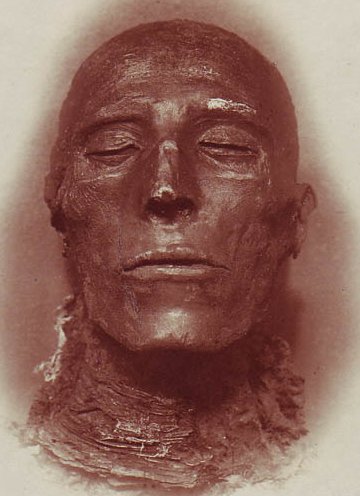Friday, February 28, 2014
Unearthing Solomon's Vineyard
Jonathan Latimer is sadly forgotten today. There was a time when his screwball private eye series featuring the rarely sober Bill Crane were bestsellers and even made the transition to the silver screen in the late 1930s courtesy of Universal Pictures in a fun trio of B-movies. Latimer was a respected Hollywood screenwriter of the 1940s who crossed over to television from the 1950s through the early 1970s writing for such series as Perry Mason and Columbo. He also achieved instant notoriety as the author of the hardboiled detective novel, Solomon’s Vineyard which was banned almost upon publication in 1941 and remained unavailable in its original form in the U.S. for decades.
The general consensus is with Solomon’s Vineyard, Latimer turned up the heat on hardboiled detective fiction and blurred the line between pulp and pornography. Most critics will claim that even today, readers would be hard-pressed to find a tougher or more shocking private eye novel. While public domain copies riddled with typos are easy to come by, I finally tracked down an affordable copy of an earlier edition and read the book for myself. I was shocked as well, not by the content, but to learn the book is clearly intended as yet another of Latimer’s laugh-out-loud farces despite its reputation.
TO CONTINUE READING THIS ARTICLE, PLEASE VISIT THE BLACK GATE.
Thursday, February 20, 2014
Spaghetti Westerns Go Kaballah
I’ve known Ed Erdelac from New Pulp circles, but had never read any of his fiction before. Ed is a very talented author who has determined to carve out his own niche in the familiar sub-genre of spaghetti westerns.
If one is to be accurate, spaghetti westerns were westerns of the 1960s and 1970s made by Italian filmmakers in Spain with international casts and international funding. They offered an avant-garde spin on westerns which were gritty, realistic, bloody, and notably laconic in contrast to the traditional Hollywood westerns which mythologized America’s past. Since the mid-1960s, Hollywood has occasionally offered up their own imitation spaghetti westerns right up to Quentin Tarantino’s acclaimed Django Unchained.
Enter: Ed Erdelac. Ed wasn’t the first author to translate spaghetti westerns to the printed page. Sergio Leone’s Dollars trilogy inspired a Man with No Name literary series in the 1960s. However, he is, to my knowledge, the first author to put a Jewish spin on this very stylish sub-genre. While there was a tongue-in-cheek Jewish spy series in the 1960s, Erdelac isn’t interested in writing a kitsch genre spoof. The Merkabah Rider series is as deadly serious as it is eccentric and the dramatic tone makes all the difference to the book’s success.
TO CONTINUE READING THIS ARTICLE, PLEASE VISIT THE BLACK GATE.
Labels:
Ed Erdelac,
Merkabah Rider,
New Pulp,
spaghetti western
Friday, February 14, 2014
The Return of Renner and Quist
Samhain Publishing has just awakened Sleeping Bear, the second Renner and Quist adventure by Mark Rigney to see publication as an ebook. I discovered the series last year when the same publisher unearthed The Skates, a screwball quest involving tormented Victorian souls, a pair of magic ice skates, a ghostly hound, and dimensional time and space travel.
For the benefit of newcomers, Renner and Quist are an odd couple double act comprising a stuffy Unitarian minister and a rather crude, sometimes boorish, ex-linebacker and former private eye who team to solve occult mysteries in Michigan. This quirky series is surprisingly literate fiction that calls to mind Douglas Adams’ delightful Dirk Gently series.
Rigney’s fiction is built around his characters’ faith (or their lack thereof) in the supernatural and preternatural. The series is thought-provoking as much as it is entertaining. This time out, Sleeping Bear finds Reverend Renner suffering through a crisis of faith as his attempts to minister at a local hospice have fallen on not just deaf ears, but unbelieving ones.
TO CONTINUE READING THIS ARTICLE, PLEASE VISIT THE BLACK GATE.
Friday, February 7, 2014
As Tartary Burns
As Tartary Burns is the debut novel by Riley Hogan and is newly published by Airship 27. Calling the novel pulp fiction isn’t completely accurate. Hogan finds himself in the same position as the standout talents of the pulp world of the 1920s and 1930s who were published in the pulps but whose prose was more polished and literate than most of their peers to the degree that it seems an oversight they were passed up by the slicks. Many of those talents today are recognized as having lasting literary value. So it is with As Tartary Burns, an ambitious fast-paced historical adventure that presents an alternate history of the Cossacks, Ottomans, and Crimeans.
Hogan’s book has been likened to Robert E. Howard and Harold Lamb. One reviewer suggests comparison to the film Braveheart. I felt it read like a stream-lined Game of Thrones with the explicit sex and language excised. Hogan is possessed not only of an obvious passion for history, but a pride in the culture, folklore and religion of these people to the degree that one wonders if it is his own heritage. His reshaping of world events makes one curious if he plans not so much a conventional follow-up, but rather an expanding alternate history of the world set in different epochs.
TO CONTINUE READING THIS ARTICLE, PLEASE VISIT THE BLACK GATE.
Subscribe to:
Comments (Atom)


.jpg)